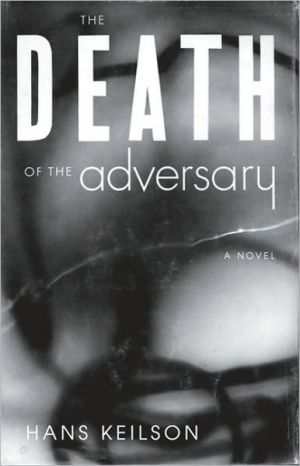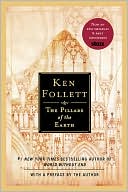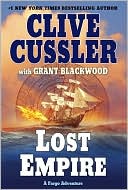The Death of the Adversary
Written while Hans Keilson was in hiding during World War II, The Death of the Adversary is the self-portrait of a young man helplessly fascinated by an unnamed “adversary” whom he watches rise to power in 1930s Germany. It is a tale of horror, not only in its evocation of Hitler’s gathering menace but also in its hero’s desperate attempt to discover logic where none exists. A psychological fable as wry and haunting as Badenheim 1939, The Death of the Adversary is a lost classic of modern...
Search in google:
Written while Hans Keilson was in hiding during World War II, The Death of the Adversary is the self-portrait of a young man helplessly fascinated by an unnamed “adversary” whom he watches rise to power in 1930s Germany. It is a tale of horror, not only in its evocation of Hitler’s gathering menace but also in its hero’s desperate attempt to discover logic where none exists. A psychological fable as wry and haunting as Badenheim 1939, The Death of the Adversary is a lost classic of modern fiction.The New York Times - Francine Prose…The Death of the Adversary and Comedy in a Minor Key are masterpieces, and Hans Keilson is a genius…Although the novels are quite different, both are set in Nazi-occupied Europe and display their author's eye for perfectly illustrative yet wholly unexpected incident and detail, as well as his talent for story telling and his extraordinarily subtle and penetrating understanding of human nature. But perhaps the most distinctive aspect they share is the formal daring of the relationship between subject matter and tone…Rarely have such harrowing narratives been related with such wry, off-kilter humor, and in so quiet a whisper. Read these books and join me in adding [Keilson] to the list, which each of us must compose on our own, of the world's very greatest writers.
\ From the PublisherPraise for Death of the Adversary\ “For busy, harried or distractible readers who have the time and energy only to skim the opening paragraph of a review, I’ll say this as quickly and clearly as possible: The Death of the Adversary and Comedy in a Minor Key are masterpieces, and Hans Keilson is a genius . . . Although the novels are quite different, both are set in Nazi-occupied Europe and display their author’s eye for perfectly illustrative yet wholly unexpected incident and detail, as well as his talent for storytelling and his extraordinarily subtle and penetrating understanding of human nature. But perhaps the most distinctive aspect they share is the formal daring of the relationship between subject matter and tone. Rarely has a finer, more closely focused lens been used to study such a broad and brutal panorama, mimetically conveying a failure to come to grips with reality by refusing to call that reality by its proper name . . . Rarely have such harrowing narratives been related with such wry, off-kilter humor, and in so quiet a whisper. Read these books and join me in adding him to the list, which each of us must compose on our own, of the world’s very greatest writers.” —Francine Prose, The New York Times Book Review“A welcome reissue of a classic . . . This psychologically subtle and acute account of denial in the face of Hitler’s rise to power received strong acclaim before disappearing from print. With the celebration last year of the 100th birthday of Keilson . . . the novel has lost none of its insidious power . . . The narrative recalls the existential depth of Camus and the fabulist absurdity of Kafka or Beckett.” —Kirkus Reviews\ “The power of the unsaid haunts this devastating novel . . . A profoundly affecting exploration of the inextricable nature of love and hate, friend and enemy, Keilson’s work . . . is as stimulating today as it was half a century ago.” —Publishers Weekly\ “Since Adolf Hitler, an outpouring of writing has tried to explain the violence that human beings do to one another . . . Perhaps the profoundest explanation to date comes from the pen of a Jewish writer driven from Germany in 1936 and now living in Holland. Hans Keilson’s novel subtly and eloquently probes the ambivalent relation of victim with aggressor . . . Keilson traces the growth of hatred in his leading character as other writers trace love or self-knowledge.” —Time, Best Books of 1962\ \ \ \ \ \ Kirkus ReviewsA welcome reissue of a classic about Nazi evil originally published in German in 1959. This psychologically subtle and acute account of denial in the face of Hitler's rise to power received strong acclaim before disappearing from print. With the celebration last year of the 100th birthday of Keilson, a psychoanalyst who was part of the Dutch resistance during World War II, the novel has lost none of its insidious power. Cast as notes left behind by an anonymous German outcast in the years before the war, the narrative recalls the existential depth of Camus and the fabulist absurdity of Kafka or Beckett, as it illuminates the protagonist's symbiotic relationship with the enemy whom he wishes he had killed when he might have had the chance. Though the narrator doesn't identify himself specifically as Jewish or his adversary as Hitler, the parable has even more resonance than a fictional memoir would. "The whole thing was a comedy, a comedy in a minor key," writes the narrator. "Tomorrow it would become real; then it would be tragedy." The most striking episodes in a novel filled with them include a rally during the enemy's ascent ("He still had to stay within certain limits, but his threats were unmistakable. He was not, as yet, master over life and death. As yet?") and a chilling rampage through a cemetery, defiling the dead. The framing of the novel suggests that these pages are being read years after they were written, and written years after the events recounted, but such distance doesn't render the narrative any less vivid: "In the middle of a sentence, in the middle of the debate with his adversary, he began to scream and rave. A lunatic!" Yet the enemy could not be so easily dismissed, as subsequent horrors would prove. A novel of psychological devastation, where the unthinkable and unspeakable exist offstage.\ \ \ Francine Prose…The Death of the Adversary and Comedy in a Minor Key are masterpieces, and Hans Keilson is a genius…Although the novels are quite different, both are set in Nazi-occupied Europe and display their author's eye for perfectly illustrative yet wholly unexpected incident and detail, as well as his talent for storytelling and his extraordinarily subtle and penetrating understanding of human nature. But perhaps the most distinctive aspect they share is the formal daring of the relationship between subject matter and tone…Rarely have such harrowing narratives been related with such wry, off-kilter humor, and in so quiet a whisper. Read these books and join me in adding [Keilson] to the list, which each of us must compose on our own, of the world's very greatest writers.\ —The New York Times\ \








